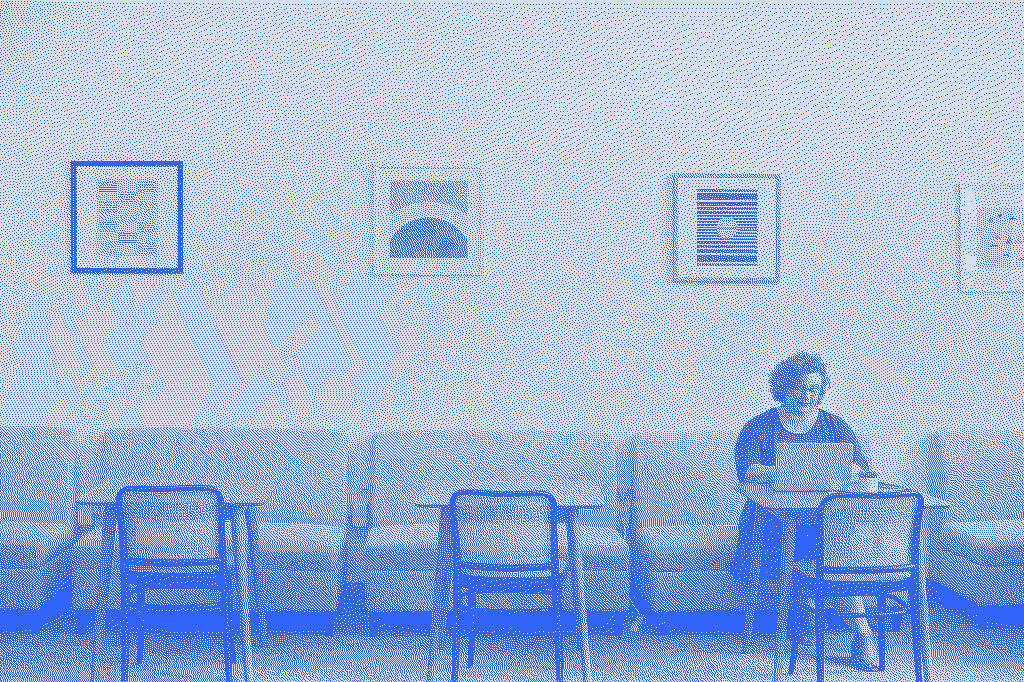Whether you’re going through it, you’re an employer, or you’re a friend or family member of someone who is, here’s some resources that can help.
The facts
What’s the average age to reach menopause?
The average age to reach menopause, when the menstrual cycle ends, is 51.
Find out more from nhs.uk:
Menopause - NHS

But many will experience menopause in their 40s or earlier. Causes of early menopause include premature ovarian insufficiency, which can be caused by chromosome abnormalities, autoimmune disease or, rarely, as a result of certain inflections such as tuberculosis, malaria and mumps.
Find out more from nhs.uk:
Early menopause - NHS

Others will experience an early menopause as a result of cancer treatment, which can be permanent or temporary.Further, the surgical removal of ovaries (for example during a hysterectomy) will being on menopause immediately, whatever the patient’s age.If you, or someone you know, has experienced early menopause and would like support, check out our resources section for details of organisations that can help.

What are the symptoms of menopause?
Hot flushes are the most common symptom of the menopause, occurring in three quarters of those going through menopause.
Find out more from womens-health-concern.org:
The menopause - Women’s Health Concern
What is less well known is that there are over 30 symptoms associated with menopause, including night sweats, sleep problems, vaginal dryness, irritated skin, more frequent urinary incontinence and urinary tract infections, low mood and a reduced interest in sex. Symptoms can vary hugely in terms of duration, severity and the impact they have on individuals.Of those who do experience hot flushes and night sweats, these symptoms can last for over seven years on average.
Find out more from nih.gov:
Duration of Menopausal Vasomotor Symptoms Over the Menopause Transition

More information on the full range of menopause symptoms is available.
Find out more from themenopausecharity.org:
Symptoms list - The Menopause Charity
How does menopause affect those at work?

Those in menopause are the fastest growing demographic in the UK workforce.
Find out more from gov.uk:
Menopause transition: effects on women’s economic participation - GOV.UK
According to the Chartered Institute for Personnel Development (CIPD), the majority of those going through menopause (59%) say it has a negative impact on them at work.
Find out more from cipd.co.uk:
Majority of working women experiencing the menopause say it has a negative impact on them at work | CIPD

Further, nearly two-thirds (65%) said they were less able to concentrate. More than half (58%) said they experience more stress. Over half (52%) said they felt less patient with clients and colleagues.Nearly a third surveyed (30%) said they had taken sick leave because of their symptoms, but only a quarter of them felt able to tell their manager the real reason for their absence.When asked why they didn’t disclose that menopausal symptoms were the reason for being away from work, 45% cited privacy (45%) as their number one consideration, 34% said embarrassment prevented them from saying why they had to take time off and another 32% said an unsupportive manager was the reason.

More say they feel supported by their colleagues (48%) when going through the menopause than by their managers (32%).Modern, inclusive employers will want to support employees going through menopause. A recent UK Government review found that good evidence exists about employer interventions that work. It recommends changing organisational cultures; compulsory equality and diversity training; providing specialist advice; tailored absence policies; flexible working patterns for mid-life women; and fairly low cost environmental changes.

Employers should make sure they know how the menopause relates to the law, including the Equality Act 2010 and the Health and Safety at Work Act 1974.
Find out more from acas.org.uk:
Menopause and the law: Menopause at work - Acas

As ACAS point out in their menopause guide, the menopause is not a specific protected characteristic under the Equality Act 2010. But if an employee or worker is put at a disadvantage and treated less favourably because of their menopause symptoms, this could be discrimination if related to a protected characteristic such as age, disability or sex.
What are my treatment options?
Most people will have heard of Hormone Replacement Therapy (HRT). The right HRT, at the right dose, can go a long way in terms of providing relief. HRT is available in a range of forms, including tablets, sprays, gels or patches.For most patients, HRT is safe and effective. Evidence also shows HRT can benefit those taking it in other ways, including reducing the risk of cardiovascular disease and of developing osteoporosis.
Find out more from themenopausecharity.org:
The benefits of HRT - The Menopause Charity

However, HRT is not always right for everyone. NICE, the body that provides guidance to the NHS, report that only 17% of patients use it.
Find out more from nice.org.uk:
Overview | Menopause: diagnosis and management | Guidance | NICE
Individuals may have a medical condition or family history that means HRT might not be suitable.Further, many prefer to explore alternative ways of managing symptoms.Prescription medicines are sometimes used to help relieve menopausal symptoms. These include some types antidepressants, clonadine (usually used to treat high blood pressure), and gabapentin (usually used to treat epilepsy and nerve pain). These medications may help with symptoms like hot flushes, night sweats, vaginal dryness, low mood and anxiety.

Cognitive Behavioural Therapy (CBT) is an effective, drug-free treatment that can help those dealing with troubling symptoms. Most commonly through the NHS CBT is an option presented to those dealing with depression and anxiety. Growing evidence is demonstrating that CBT can help with managing hot flushes, night sweats and other symptoms too.
Find out more from womens-health-concern.org:
Cognitive Behaviour Therapy (CBT) for Menopausal Symptoms - Women’s Health Concern

Regular exercise is great for your physical and mental health.All of us should aim for 30 minutes of moderate intensity exercise five times per week. Exercise will support your bone health, strengthen your muscles, boost your mood and help you to maintain a healthy weight. Many people find yoga and pilates helpful, as well as mindfulness and meditation sessions.

In terms of alternative treatments, you may have heard of St John’s wort, black cohosh, soy isoflavones and red clover. Many of these products claim to ease menopausal symptoms, but scientific evidence is inconclusive. Individuals should be aware that they can have side effects or interfere with other medicines, so always consult your doctor.Some people find massage, acupuncture or aromatherapy helpful. There’s little scientific evidence to support their use, but these therapies can certainly help with relaxation so may be worth trying.
Resources
NHS: General information about menopause.National Institute for Health and Clinical Excellence: National guidelines to the NHS on treatment that should be offered to those experiencing menopausal symptoms.Menopause Café :A non-profit organisation. Volunteers run Menopause Cafés all over the country. Open to people of all genders and ages gather to eat cake, drink tea and discuss menopause. Find out when one is happening near you – or start your own.The Menopause Charity: Founded by Dr Louise Newson, the Menopause Charity provide facts, advice and support.Daisy Network: A charity for women with premature ovarian insufficiency.British Menopause Society: Established in 1989, the British Menopause Society educates, informs and guides healthcare professionals, working in both primary and secondary care, on menopause and all aspects of post reproductive health.Women’s Health Concern: Established in 1972, Women’s Health Concern provides a confidential, independent service to advise, inform and reassure women about their gynaecological, sexual and post reproductive health.Global Menopause Inclusion Collective: The Global Menopause Collective is a collaboration of menopause activists, advocates, experts by experience, researchers, individuals and professionals with interest in advancing equality, equity, diversity and inclusion in the menopause movement.
1in25.today is maintained by Lumino, a UK-based social venture. Lumino is developing highly-scalable digital therapeutics products to make treatment available to everyone, quickly and easily.
The contents of this site—text, graphics, links and other material—are for information only, and not intended to be a substitute for professional medical advice, diagnosis or treatment. Always seek the advice of your qualified health provider with any questions you may have regarding a medical condition. Never disregard professional medical advice or delay in seeking it because of something you have read on this website.

